News
REVEALED! One In Three Nigerian Children Out Of School, Says UNICEF
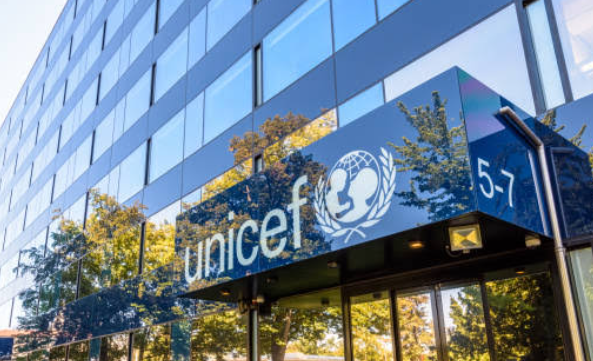
The United Nations International Children’s Emergency Fund (UNICEF) has distributed 2,760 solar-powered radio sets to the Katsina State Universal Basic Education Board (SUBEB) but rued the growing out-of-school children population in Nigeria.
UNICEF handed over the radio sets to Katsina SUBEB for students in the security frontline communities to learn lessons.
In his address during a Media Dialogue on Retention, Transition, and Completion (RTC) and Re-entry Guidelines for Adolescent Girls in the State, the Chief of Field, UNICEF Field Office Kano, Rahama Farah, revealed that Nigeria’s education system is faced with the twin crises of a large and growing out-of-school population and severe learning poverty.
According to him, one in three children is out of school in Nigeria, representing 10.2 million at the primary school level and 8.1 million children at the junior secondary level.
“Nigeria’s education system is faced with the twin crises of a large and growing out-of-school population and severe learning poverty,” he said.
“One in three children are out of school (OOS) (10.2 million at primary school level and 8.1 million children at junior secondary level), and according to the Multiple Indicator Cluster Survey (MICS) 2021, three in four children aged 7-14 years cannot read with understanding or solve a simple mathematics problem”.
Farah said that UNICEF, and partners such as the World Bank, the European Union, and the FCDO have collaborated with AGILE and BESDA projects to support Katsina State and governments in the North-West to reprioritise investments in education and to mitigate against the declining state of education in terms of access, participation and quality of learning outcomes.
“We are all here because our education system is in a crisis; a crisis characterised by a high number of out-of-school children, low attendance and participation rates, low transition rates, low completion rates, poor learning outcomes, and low skills acquisition for children at all levels.
These issues characterising the education system are at the backdrop of high insecurity in the North-West and, Katsina and Zamfara states; low financing to education; poorly resourced schools; low teacher competency levels and high pupil-teacher ratio, among others.
“Together, these factors lead to low overall education attainment, hamper social and economic opportunities for young people, and perpetuate intergenerational cycles of poverty and inequality.
“Stalled progress on Sustainable Development Goal (SDG) 4 will affect regional and global development as Nigeria accounts for the largest global (15 per cent) and regional (33 per cent) share of OOS children.
“Education indicators are the lowest for adolescent girls in the North-east and North-West Nigeria, especially children from poor families and those in rural and security-compromised areas.
In 2021 alone, a least 25 schools were attacked, directly impacting 1,446 learners and 24 personnel. Seventy-six percent of the attacks took place in the Northwest.
“Kaduna was the most frequently attacked (8 out of 25 attacks). Katsina (344 learners) followed by Zamfara states (327 learners) reported the highest number of abductees taken in a single abduction.
“As a precautionary measure, in the 2020/21 academic year, over 11,000 schools were closed for four months, significantly disrupting the education of 1.3 million children.
“The OOS phenomenon is fueled by the growing child population placing significant pressure on the delivery of social services. Yet education financing has not kept pace with a burgeoning demand for education and the high fertility rate.
“Nigeria spends 1.2 per cent of GDP on education, far lower than other African countries and notably lower than the international benchmark of four to six per cent.
“Insufficient domestic financing results in a shortfall of 378,000 classrooms and approximately 278,000 teachers.
“This leads to high student-teacher ratios (e.g., 55:1 at the primary level) and additional pressure on teachers whose capacity is already limited, as 50 per cent of basic education teachers lack the Nigerian Certificate in Education (NCE) or the minimum teaching qualification. What is more, in each workday, 20 per cent of primary school teachers are absent.
“Inadequate and unsafe school infrastructure, poor teaching quality, and low learning outcomes are exacerbated by insecurity and school attacks and compounded by staggering poverty and negative social norms on education, particularly for girls.”
He added, “With regards to Katsina state, the number of Out of School Children has been high (536,122 children) but is progressively reducing over the last eight years from 36.9% in 2016 to 35.5% in 2021 (MICS) and a projected 30% by 2024 if commitments to education and investments are sustained.
“Primary school completion rate in Katsina state averages 62.5% compared to the national average of 73.1% and 56.1% for the northwest respectively. Senior Secondary School Completion rates are low, with only 32 percent of children enrolled completing their education (MICS 2021).
“Although it is important to note that Katsina state has a positive gender parity index of 1 at the primary level, meaning there are nearly equal numbers of girls and boys in primary school, the transition rates can be more encouraging than they are no.
“Transition rate to secondary school in Katsina state stands at 69.5 % lower than the national average of 84% and the northwest average of 70% (MICS 2021) with fewer girls transitioning to secondary school than boys.
“Only 9.2% and 13.3 % of children in Grade 3 were able to demonstrate reading and numeracy skills respectively in Katsina state compared to the national average of 26.8 and 25.3 in reading and numeracy skills.
“I would also like to highlight a few initiatives that the Katsina state government in collaboration with UNICEF and other development partners have put in place to respond to the declining status of education in the state, with some notable positive outcomes.
“Increased financing to education: The Katsina state government has this year increased its state budgetary allocation from 28% to 34%. UNICEF urges that this allocation be matched by release and spending.
“Increase in the number of newly recruited teachers. The Katsina state government has recruited an additional 7,325 teachers in the 2023/24 financial year to mitigate the critical shortage of teachers in the state.
“Provided over 100,000 social cash transfers to keep children from the poorest families in school.
“Enrolled over 123,575 learners, boys, and girls, on the Nigeria Learning Passport platform in the last two years, providing access to alternative learning to many children. This represents 11 per cent of total NLP enrolment in Nigeria.
“Created 500 community learning hubs in 10 frontline LGAs, engaged radio stations to broadcast radio learning programmes, and provided solar radios and memory sticks in support of alternative learning solutions.
“Launched a strategy that provides equal opportunities to all children to enroll, participate, transition, and complete school.
“Created an enabling environment for a second chance education for girls through Re-Entry guidelines that provide opportunities for pregnant and married girls to re-enroll and complete their education.
“UNICEF would like to engage the media as equal partners in education development and ensure that every parent, community leader, traditional leader, and religious leader is aware of the government of Katsina and its partners’ priorities, plans, and urgency to ensure every child has an equal opportunity to enroll, participate, transition, and complete their education in a safe and conducive environment,” he noted.
On his part, the Chairman of the School-Based Management Committee, Chiroma Ingawa, expressed gratitude to UNICEF for their support and interventions over the last three years, stating that the organisation helped education in the state across both the primary and secondary schools.
He therefore assured readiness to support and implement any programme brought by UNICEF to Katsina State.
News
Olorogun Olori hails Wike’s political sagacity in South South
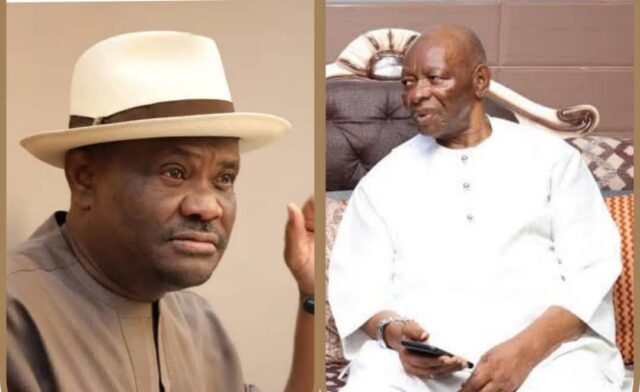
Elder statesman, Olorogun Morrison Olori, has hailed the Minister of the Federal Capital Territory, Chief Nyesom Wike, for his outstanding political leadership in the South-South region and his strategic role in advancing President Bola Ahmed Tinubu’s Renewed Hope Agenda.
Olori, an octogenarian and chieftain of the All Progressives Congress (APC) in Delta State, particularly praised Wike for his transformative work as Minister of the Federal Capital Territory (FCT).
In a statement made during a public policy dialogue in Abuja, Olorogun Olori hailed Chief Wike as “a tireless bridge-builder and result-oriented leader who has brought stability and strategic political direction to the South-South and beyond.”
Chief Wike has not only strengthened the political base of the South-South region but has also become a key player in driving the Renewed Hope Agenda of President Tinubu through inclusive governance and infrastructural transformation,” Olori said.
Highlighting Wike’s impact as FCT Minister, Olori pointed to the minister’s record-setting performance in the signing of over 5,000 Certificates of Occupancy, as well as his aggressive infrastructure renewal across the city, including road expansions, urban beautification, and housing developments. He described Wike’s efforts as “a masterclass in leadership and vision.”
“His work in Abuja has demonstrated that the Renewed Hope Agenda is not just a slogan—it is being implemented in concrete ways. He is delivering real, visible change,” Olori noted.
Olorogun Olori also emphasized Wike’s political courage in rallying support for national unity and economic revival, particularly in the South-South geopolitical zone, where he continues to serve as a stabilizing force and a voice of progress.
“Wike has used his influence not for personal gain, but to elevate the South-South and to help President Tinubu consolidate the gains of this administration,” Olori added. “This kind of partnership between the presidency and regional leaders is exactly what Nigeria needs right now.”
Olori, however, urged other political leaders to emulate Wike’s commitment to excellence and patriotism, emphasizing that Nigeria needs more leaders who “serve with sincerity and deliver with impact.”
News
Nigeria Felicitates with South Africa on 31st Freedom Day Anniversary

By Gloria Ikibah
Nigeria has congratulated South Africa on the celebration of its 31st Freedom Day anniversary, marking more than three decades since the end of apartheid rule.
This was contained in a statement issued by the Ministry of Foreign Affairs, on Sunday in Abuja, the Minister, Ambassador Yusuf Maitama Tuggar, extended warm greetings to his South African counterpart, His Excellency Ronald Lamola, Minister of International Relations and Cooperation.
Ambassador Tuggar described the day as a reminder of the historic victory of democracy over apartheid and a celebration of the resilient and unified spirit that continues to shape South Africa’s journey.
“Nigeria and South Africa share a profound bond forged through decades of solidarity in the liberation struggle. As we reflect on this milestone, we recall Nigeria’s unwavering support for the anti-apartheid movement, including diplomatic, material, and moral contributions that underscored our commitment to justice and the ethos of pan-Africanism,” the statement read.
Highlighting the strong bilateral ties between the two countries, Tuggar emphasized the shared responsibility Nigeria and South Africa have in promoting peace, security, and inclusive development across the African continent.
He noted that as Africa’s two largest economies and democracies, there is a need to strengthen collaboration in areas such as trade and investment through the African Continental Free Trade Area (AfCFTA), as well as cultural exchanges and youth empowerment.
“Therefore, on this Freedom Day, we stand with South Africa in honouring the sacrifices of heroes like Walter Sisulu, Nelson Mandela, Govan Mbeki, Thabo Mbeki and recommit to working together to realize the vision of a prosperous, peaceful, and united Africa,” he added.
News
Enugu Reps caucus backs concessioning of Enugu airport
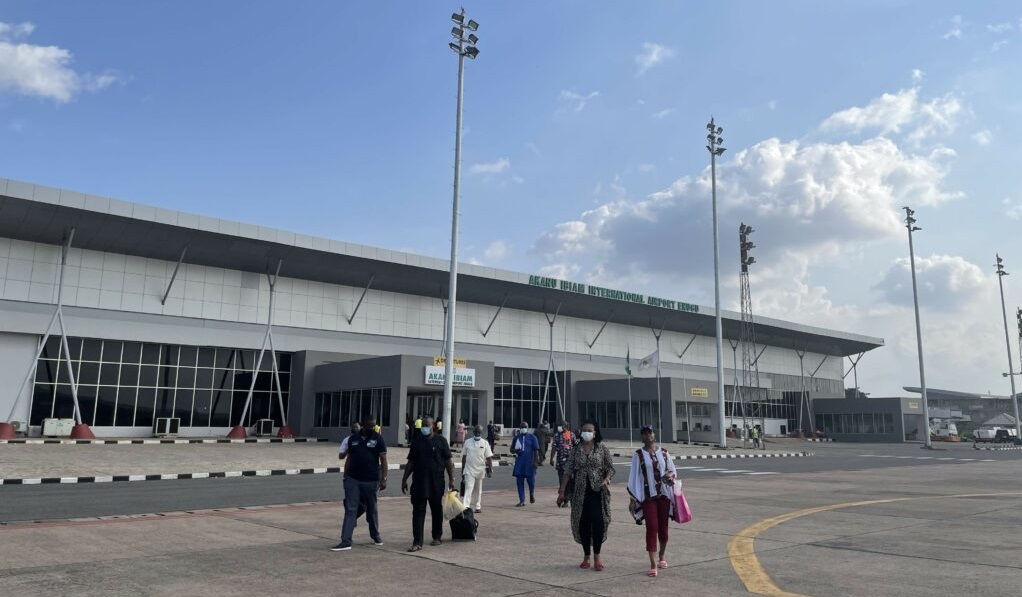
The Enugu Caucus in the House of Representatives has thrown its weight behind the Federal Government’s plan to concession the Akanu Ibiam International Airport, Enugu, describing it as a potential catalyst for the Southeast economy.
The caucus commended the Federal Government for the initiative and urged it to hasten the process to enable the people of the Southeast and the nation to benefit from it in earnest.
It also called on the people of the region to support the concession as the only way to guarantee sustainable investment to fully develop the airport into a truly international facility.
-

 News11 hours ago
News11 hours agoJust in: Senator Natasha tenders satirical ‘apology’ to Akpabio
-
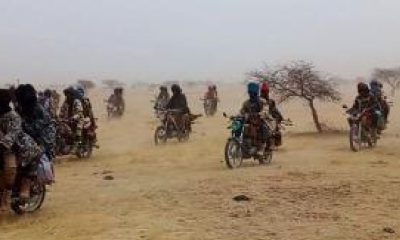
 News6 hours ago
News6 hours agoInsecurity: BUDA urges govt to quickly rescue Baruten from terrorists
-

 News7 hours ago
News7 hours agoUNUSUAL! Without invitation, Police declared me wanted — Daughter of ABC Transport owner
-
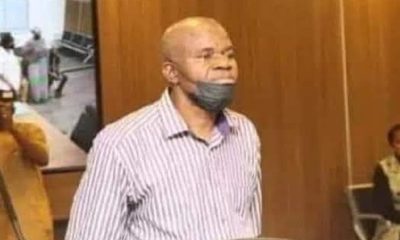
 News2 hours ago
News2 hours agoBreaking: Late gospel singer Osinachi’s husband sentenced to death by hanging
-
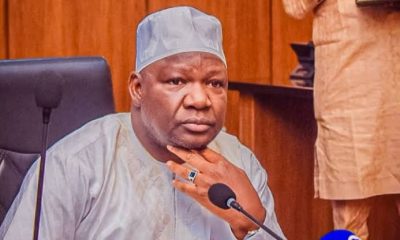
 News4 hours ago
News4 hours agoWeeks to 2nd anniversary, Niger deputy gov, plans to resign, move out personal effects
-

 News20 hours ago
News20 hours agoBenue LG chairman gives Fulanis 48hrs to leave all farmlands
-
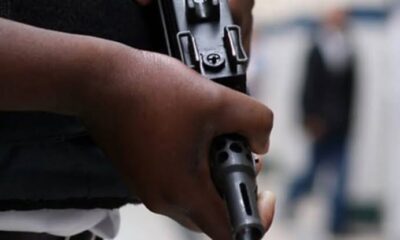
 News20 hours ago
News20 hours agoFive suspected kidnappers eliminated by police in Delta
-

 Metro13 hours ago
Metro13 hours ago‘My husband always makes love throughout the night until morning’ – Woman Wants Divorce






